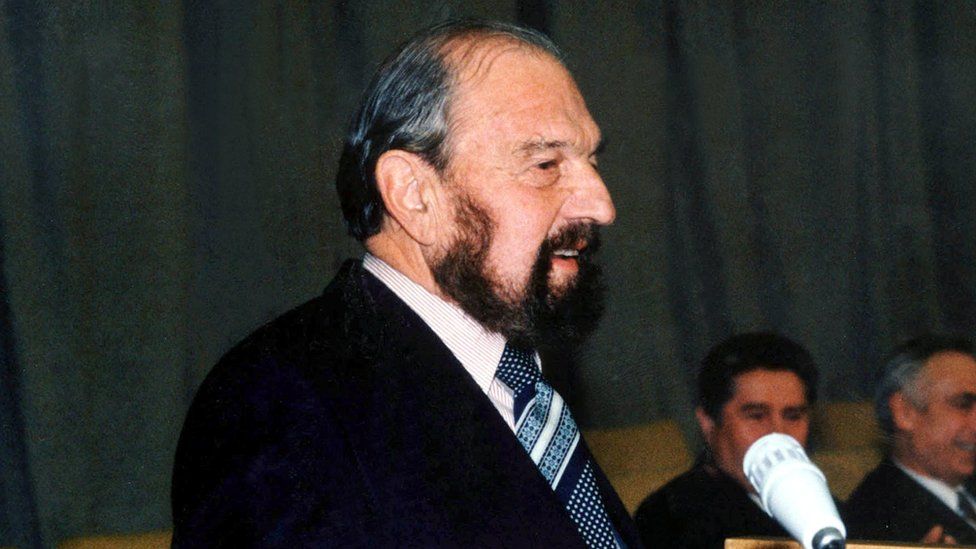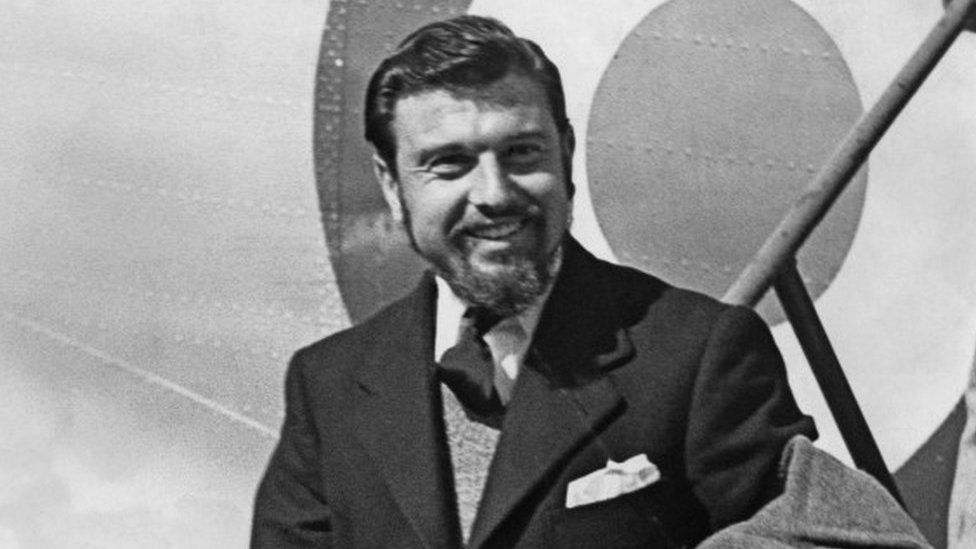George Blake, the former MI6 officer and one of the Cold War's most infamous double agents, has died aged 98, Russian media has reported.
Over nine years, the Soviet spy handed over information that led to the betrayal of at least 40 MI6 agents in Eastern Europe.
He was jailed in London in 1960, but escaped in 1966 and fled to Russia.
The Russian Foreign Intelligence Service said Blake "had a genuine love for our country"
Blake was born George Behar on 11 November 1922 in the Dutch city of Rotterdam.
His father was a Spanish Jew who had fought with the British army during World War One and acquired British citizenship.
Blake himself worked for the Dutch resistance during World War Two, before fleeing to British-controlled Gibraltar. He was later, due to his background, asked to join the intelligence service.
In an interview with the BBC in 1990, Blake said he estimated that he betrayed more than 500 Western agents but he denied suggestions that 42 of them had lost their lives as a result of his actions.
His downfall came when a Polish secret service officer, Michael Goleniewski, defected to the West, bringing his mistress and details of a Soviet mole in British intelligence.
George Blake did enormous damage to British intelligence operations during the Cold War, betraying agents and secret operations and showing that the KGB could run agents within the heart of the British state.
His escape from prison added to the embarrassment.
The reasons behind Blake's actions sometimes seemed mysterious, particularly his initial recruitment.
When I contacted him a decade ago, he told me: "It is no longer of particular importance to me whether my motivations are generally understood or not."
Part of the problem for him was that he had chosen communism but lived to see its collapse and the end of the Soviet Union, living out his days in Russia, where he was still seen as a hero by the successors to the KGB.

In 1995, Blake's escape from HMP Wormwood Scrubs became the focus of the play Cell Mates, starring Stephen Fry and Rik Mayall.
And in 2015, the BBC documentary Masterspy of Moscow followed what it called "the strange life" of an "enigmatic traitor".
https://www.bbc.com/news/uk-55452313


